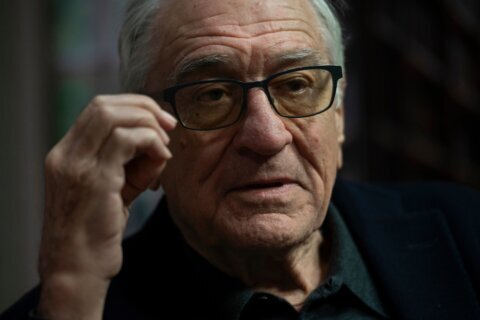They tore up the screen together in Jordan Peele’s landmark film “Get Out” (2017).
This Friday, Daniel Kaluuya and Lakeith Stanfield reunite for “Judas and the Black Messiah,” a late arrival to the Oscar race that is must-see material on HBO Max.
Set in 1969 Chicago, the story follows Fred Hampton (Kaluuya), chairman of the Illinois Black Panther Party, and his betrayal by FBI informant William O’Neal (Stanfield). As the two grow closer, can O’Neal follow through with ratting out his friend and idol?
The 29-year-old Stanfield is one of the most exciting young actors we have today, spitting raps in a juvenile facility in “Short Term 12” (2013), wrongfully convicted of murder in “Crown Heights” (2017), abducted and body snatched in “Get Out” (2017), and a brash telemarketer with activist horsepower in “Sorry to Bother You” (2018).
As the “Judas” part of the title, he oozes desperation in his attempt to reduce his own charges. We feel his conflicted dilemma as he claps and whispers “right on” as Fred speaks. It may be the best betrayal since Johnny Depp ratted Al Pacino in “Donnie Brasco” (1997) and Christian Bale ratted Jeremy Renner in “American Hustle” (2013).
Matching him step for step is the 31-year-old Kaluuya, who cried “sunken place” tears as the unforgettable lead in “Get Out” (2017), helped Chadwick Boseman build Wakanda in “Black Panther” (2018), was absolutely menacing across Viola Davis in “Widows” (2018), and went on the run like Bonnie & Clyde in “Queen & Slim” (2019).
As the “Black Messiah,” Kaluuya is a revelation, gaining weight for the role to capture Hampton’s thicker body type, while delivering electric speeches, shouting, “I am a revolutionary!” Nominated for a Golden Globe for Best Supporting Actor, Kaluuya could give Leslie Odom Jr. (“One Night in Miami”) a run for his money come Oscar time.
Equally remarkable is Dominique Fishback (“Project Power”) as his adoring girlfriend, reading a sweet poem about their future child: “Will it have your dimples? Will its eyes have your twinkle?” You may initially wonder why their age difference isn’t controversial like “Malcolm & Marie” (2021), but it turns out Fishback is only two years younger.
Rounding out the cast are Jesse Plemons (“Breaking Bad”) as the stone-faced FBI agent and Martin Sheen (“The West Wing”) in heavy prosthetics as J. Edgar Hoover, whose wiretapping of Black leaders was shown in the documentary “MLK/FBI” (2021). The two share a truly chilling scene as Sheen subtly threatens Plemons’ daughter.
Directing it all is Shaka King, who is fittingly named after King Shaka of Africa’s Zulu Empire, who was assassinated by his brothers. King says he grew up watching Martin Scorsese gangster flicks such as “Goodfellas” (1990) and “Casino” (1995), and we see the direct resemblance here as characters constantly live in fear of being whacked.
The paranoia is palpable as Stanfield is questioned by Kaluuya’s suspicious Black Panther cohorts in an intense scene where they dare him to hot wire a car to prove that he’s not a rat. We hold our breath with Stanfield in these moments, then share his relief as he backs his car out with nervous laughter in a thrilling reverse long take.
It’s just one of many dynamic shots by stellar cinematographer Sean Bobbit (“12 Years a Slave”), who works with production designer Sam Lisenco (“If Beale Street Could Talk”) to recreate the look and feel of the late ’60s, all punctuated with the blaring jazz trumpets in a memorable score by composers Craig Harris and Mark Isham (“Crash”).
The script by King and Will Berson shines most during Hampton’s attempts at bridge building. First, he approaches a rival gang, The Crowns, to say, “Think of what we could do for the city together!” Later, he crashes a meeting of white nationalists, saying that if the building were on fire, they’d all want the same thing: “water and escape.”
The climax is an emotional gut punch that it is inevitably tragic considering its title, but it’s the type of fatalistic experience that has moved us from the beginning of time, from Judas kissing Jesus to Michael kissing Fredo, the former hanging himself in remorse.
If there’s one flaw, it’s that there are too many title cards in the end credits, but they reveal the powerful aftermath by mixing a dramatized interview with Stanfield and archival footage of the real O’Neal in the PBS documentary “Eyes on the Prize” (1990).
“I was part of the struggle,” O’Neal says, trying to convince himself through the guilt.








